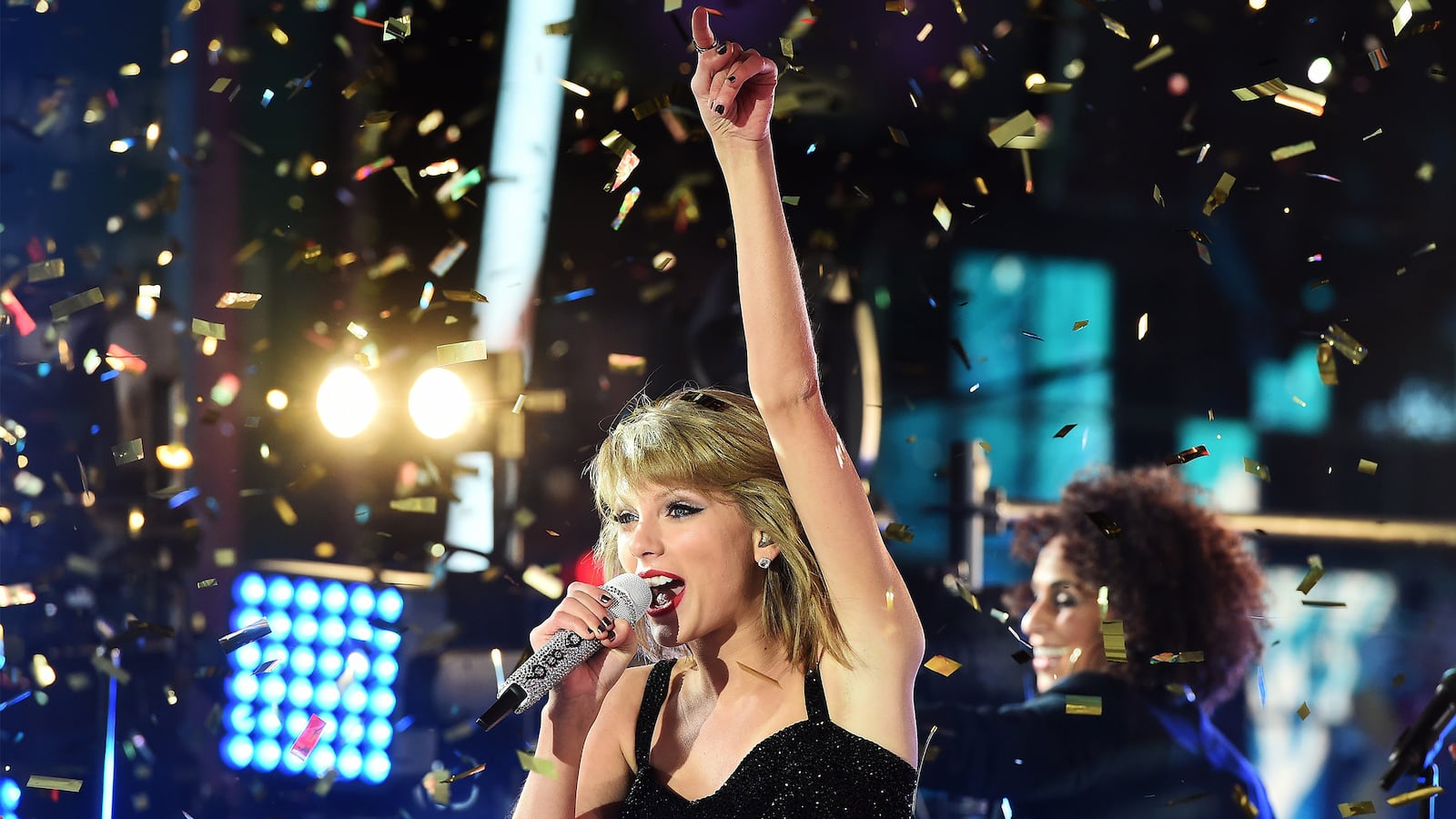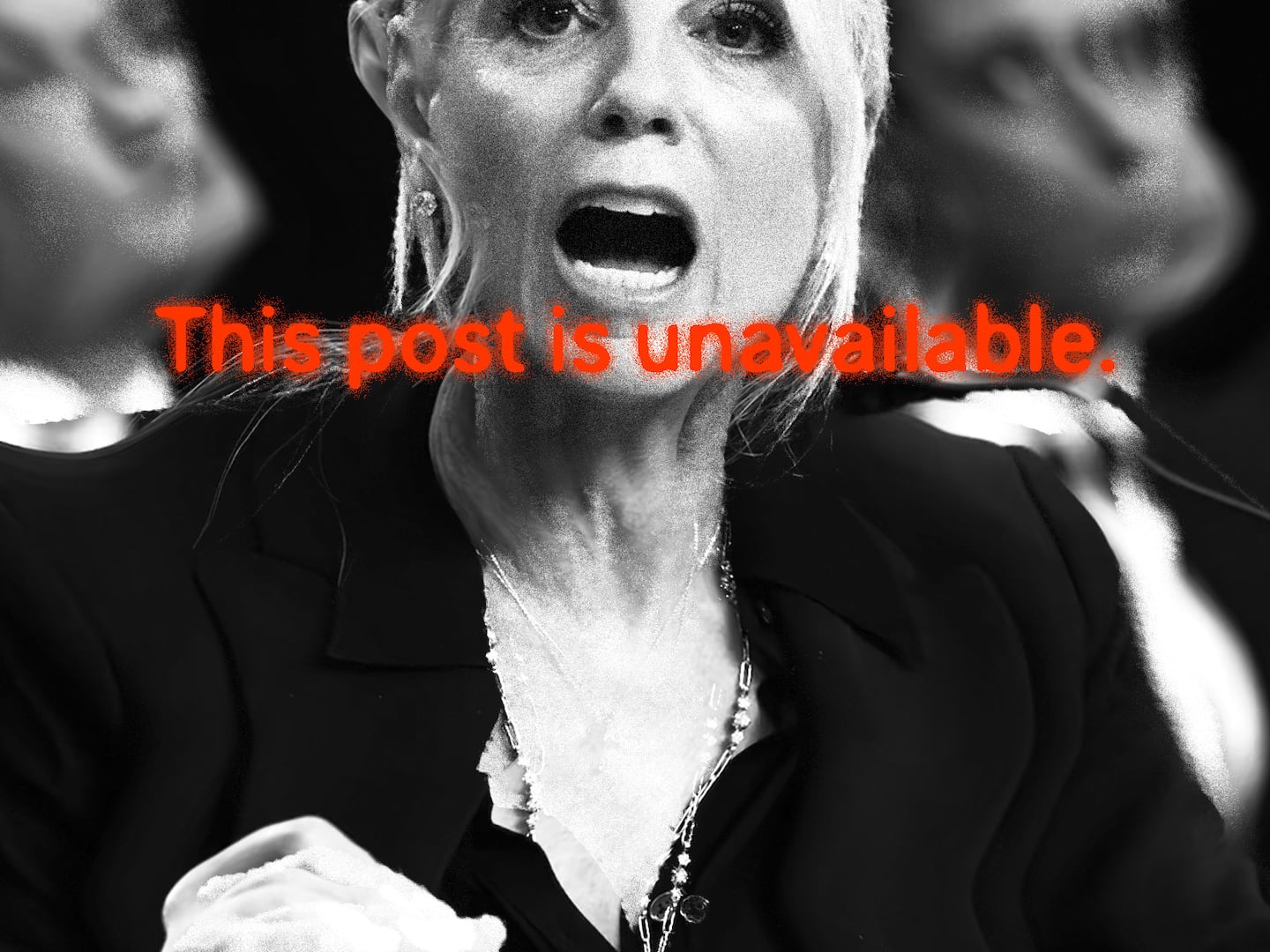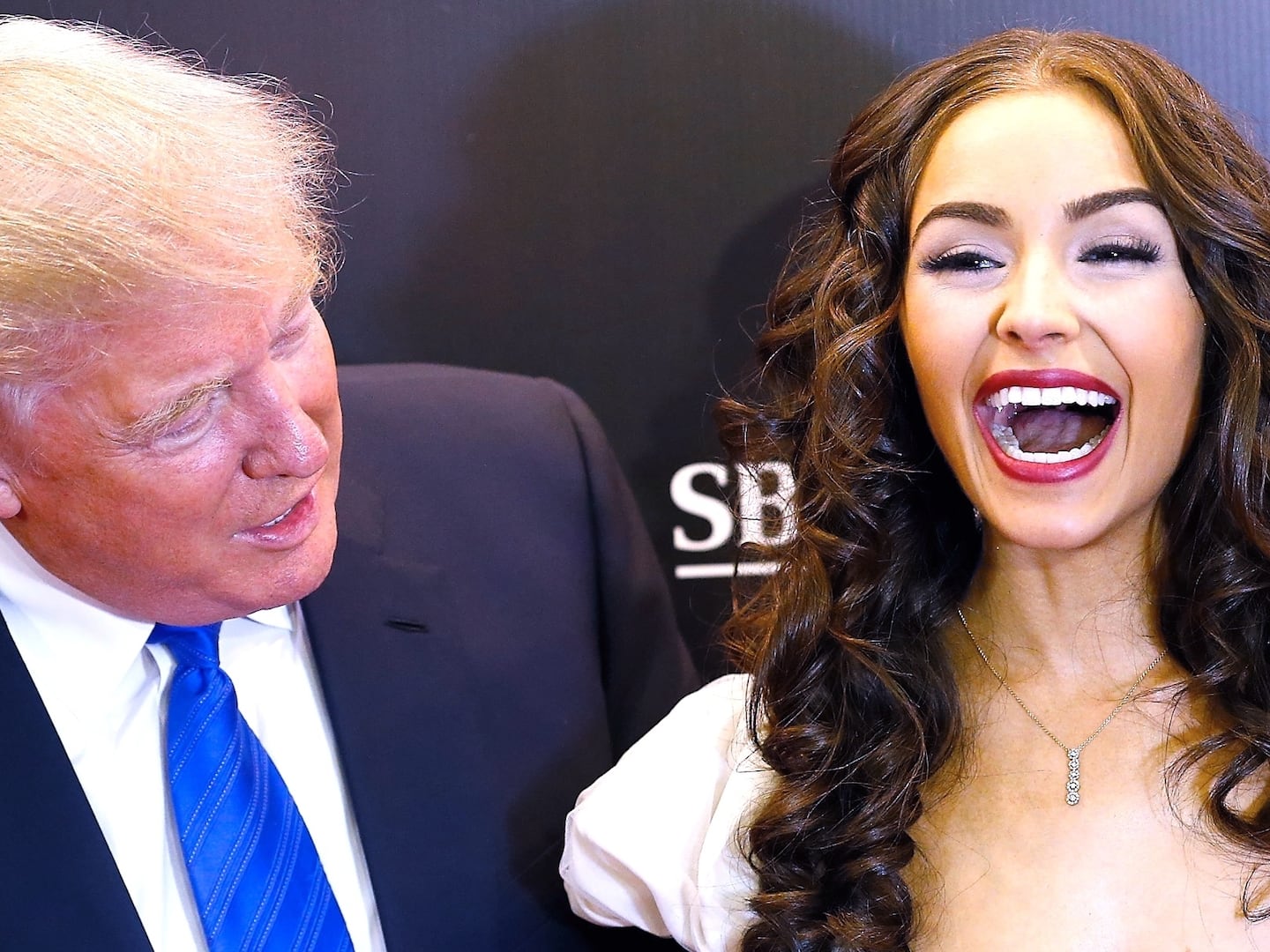In Marie Claire's upcoming September issue, genderqueer unicorn Miley Cyrus opens up about her career, her happiness, and Hollywood’s double standards. She also contributes to a growing Taylor Swift backlash, singling out the singer’s “Bad Blood” video for violent imagery: “I don’t get the violence revenge thing... That’s supposed to be a good example? And I’m a bad role model because I’m running around with my titties out? I’m not sure how titties are worse than guns.”
Swift, with her lavish New York City apartment, bevy of hot girlfriends, and devoted ab-having boyfriend, has officially attained most popular girl in school status. TSwift got her start penning heartsick ballads about bad boys—because if a Taylor Swift breakup doesn’t inspire an album of tell-all tearjerkers, did the former celebrity couple even go on two to five glamorous, thoroughly documented dinner dates?! Swift’s infamous taste in celebrity hunks, which ranged from the formerly unfuckable (Joe Jonas) to the currently unfuckable (John Mayer), was a product of our current fuck boi era. Exhausted by hookup culture and the sheer effort of pretending that Justin Bieber is hot, teenage girls flocked to the Swift school of monetizing and low-key bullying emotionally unavailable exes. It’s a classic tale of sweet, All-American girl gets the guy, then gets the girls by dumping the guy and talking all sorts of smack about him. Swift artfully walked this line between pity and empowerment, even going so far as to name her two cats (!) after sad girl icons Olivia Benson and Meredith Grey.
But like any hard-working teen queen, TSwift is due for her Regina George moment—a fall from grace akin to being pushed in front of a moving school bus (most likely by Katy Perry). The seeds of Swift backlash were planted way back in 2013, a simpler time when Cecil the Lion still roamed and Taylor Swift didn’t keep Gigi Hadid chained to a radiator in the basement of her Rhode Island estate. After our patron saints of female comedy Tina Fey and Amy Poehler made a Golden Globes joke about Swift’s dating proclivities, Swift retorted with the Madeleine Albright quote, “There’s a special place in hell for women who don’t help other women.” Swift’s hurt feelings would have been entirely unremarkable, except for the interesting precedent they set of Swift invoking feminism as a way to defend Taylor Swift—not as a complex movement that ought to serve needy women before bitter celebrities.
Swift’s fall began in earnest in 2015, with a series of business decisions that can only be described as Kris Jenner levels of Kontrolling. In January, Swift made good on her New Year’s resolution of monetizing the shit out of her songbook, trademarking five phrases from her album 1989, including “this sick beat.” Look forward to 1989-themed memorabilia coming soon to a retailer near you, faster than you can say, “I don’t want a ‘this sick beat’ wall decal.”
In keeping with her plan for kitsch world domination, Swift proceeded to issue cease-and-desist letters to Etsy shops selling homemade Swift fan art. In the words of one seller, “We didn’t feel as if it had become popular enough to cause harm to Taylor Swift’s empire... We didn’t even make enough money for a lawyer and this seemed like a harmless and fun idea. We grew a little angry and felt targeted by her camp.” Way harsh, Swift!
It’s important to note that historically Swift’s likability has been painstakingly cultivated, from sending fans hand-wrapped gifts to tweeting out kind, personalized notes of support. Swift’s apparent public opinion mastery made her Nicki Minaj-VMA’s gaffe all the more shocking. For those of you who have already forgotten the recent feud—probably to make room for more Meek Mill memes, if so, well-played—it began with Minaj’s totally legitimate anger over “Anaconda” failing to score a best video nom. In a series of emoji-laden tweets that can only be described as “adorably incendiary,” Minaj railed against the music industries perpetuation of white standards of beauty, and its refusal to acknowledge and reward black female artists.
Apparently stuck in a Shia LaBeouf-style haze of confusion, Swift confused this cultural commentary for a personal attack. Once again channeling her unique “me-me-me” wave of feminism, she @’d Minaj, “I’ve done nothing but love & support you. It’s unlike you to pit women against each other. Maybe one of the men took your slot.” Because feminism means never having to say, “As a white woman, let me step back and acknowledge that I have no idea what you’re talking about.”
Her zero percent success rate aside, Swift insisted on breaking out her “if you are mean to me, you are not a feminist” jujitsu. The backlash was immediate and merciless, with social media cries of white solipsism and racial ignorance. Katy Perry, the Swift frenemy who inspired the “Bad Blood” revenge video, couldn’t help entering the fray, tweeting: “Finding it ironic to parade the pit women against other women argument about as one unmeasurably capitalizes on the take down of a woman…” A great day for shade, but a dark day for Katy Perry’s high school English teacher.
Despite an outpouring of support from such white luminaries as Ed Sheeran and everyone’s racist grandma, Tay Tay eventually pleaded guilty to social media malpractice, apologizing, “I thought I was being called out. I missed the point, I misunderstood, then misspoke. I’m sorry, Nicki.” That tepid pile of words probably had more ghostwriters than Drake’s entire discography.
But Swift’s most vocal opponent (her Janis Ian, if you will) also happens to be her most unlikely one: Grizzly Bear singer Edward Droste. Earlier this year, Droste tweeted—and promptly deleted—“Met a celebrity I always speculated was terribly calculated and mean, and they exceeded all my expectations of rudeness and arrogance. HATE,” he continued, “If you know please don’t @ the person, they see all and have the capacity and desire to destroy, seriously, please just know and lol[...] This is an eternal blind item, bc I’m too petrified of their insane power. No need to speculate, just HAD to voice my disgust.” Since confirming that Taylor Swift was the target of his “blind item,” Droste has shared a magazine article titled, “Mean Girl Taylor’s Friendship Rules,” captioning the takedown, “Obsessed that people are catching on.”
Naturally the shared article, which implies that Swift orders her famous friends around and even tells them “not to speak unless spoken to,” earned some responses from Swift’s girl gang. Gigi Hadid pouted, “lol that’s the biggest load of bs. ‘Swift insider’ HA you wish you knew. Stop trying to create drama where there is none.” Martha Hunt crossed her tiny arms, “Bullshit. The day I met her I was impressed how open of a heart she had and she has remained that way since. Don’t knock her.” But aren’t those exactly the sort of contractually-mandated retorts that Swift’s friendship rules would require (insert series of Nicki Minaj-approved sassy blushing emojis here)?
From twerking for laughs to attacking Apple Music, Swift’s backlash-inducing problem isn’t that she’s particularly outrageous or ignorant—it’s that everything she does, under the guise of sweetness and sincerity, actually seems remarkably self-serving. Her newly-earned reputation as a no-nonsense business lady and a fair weather feminist is a far cry from her accessible, girl power public image. And those pseudo-humble awards show acceptance speeches aren’t helping either.






